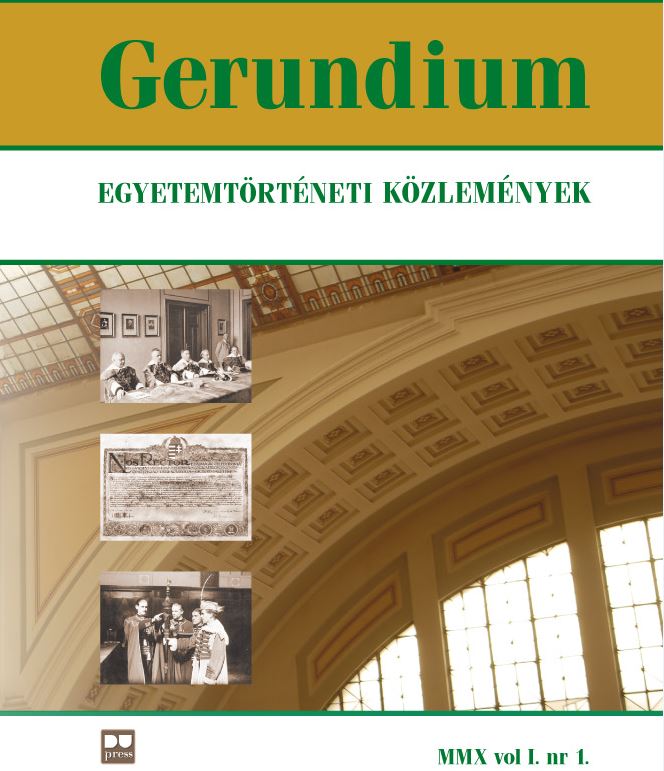Egyetemi falukutatás a két világháború között Debrecenben
Author
View
How To Cite
Abstract
Exploring Village Communities Betweeeen the Two World Wars at the Univeversity of Debebreceeceecen. Encouraged by economic, social, historical, as well as ideological factors, the sociological research of villages flourished in Hungary in the 1930s. Debrecen’s earlier involvement in the movement had been rather superficial and was restricted primarily to folk literature as it appeared in historical works. The present essay offers a survey of the appearance in the scene of village research with a sociological angle by demonstrating the fermenting effects of folk literature’s institutions (Ady Társaság), programs (Debreceni Diéták) and interim successes (Márciusi Front) in Debrecen. The survey lays particular emphasis on the sociographical activities of the university attendees’ organizations, fellowships, and the endeavors of two academic workshops: the Institute of Geography and the coterie of linguists). The aim of this study is to provide additional data to the characteristics, differences and coherences of these workshops, also attempting to picture the diversity and complexity of a nationwide involvement in exploring village communities against the background of political, ideological and scientific priorities in the era.







